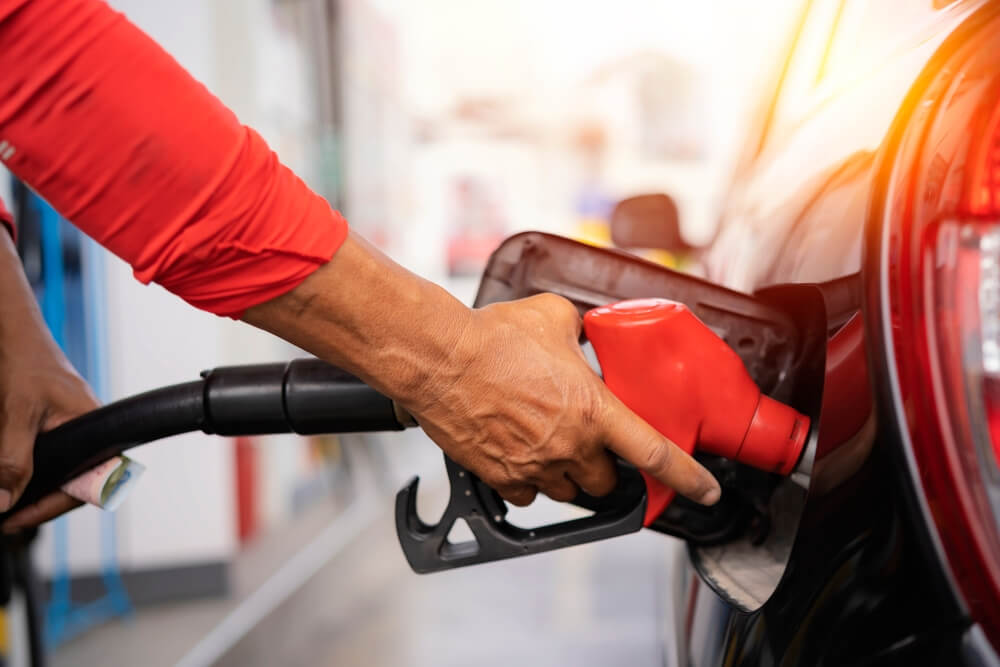Decreasing Fuel Economy: Meaning And Relation With Emissions
Find Used Engines and Transmissions for a Great Price! Live Assistant For Used Engines Call 1800-518-9776

Fuel economy is a primary concern for both customers and automakers in the modern world. The word "fuel economy" describes an assessment of how well a vehicle uses gasoline to run. In essence, it describes the distance that a car can travel on a gallon of gasoline or a litre of fuel. When fuel efficiency declines, your car uses more fuel to travel the same distance, which may be expensive for your budget and bad for the environment. This blog article will examine the significance of declining fuel economy and its tight connection to emissions.
What affects fuel economy?
Various factors affect fuel economy; here are a few of them;
-
Engine Efficiency: Modern engines with cutting-edge technology typically have higher fuel efficiency.
-
Aerodynamics: Vehicles with better aerodynamic designs encounter less air resistance, improving fuel efficiency.
-
Maintenance: Performing routine maintenance, such as air filters and oil changes, helps guarantee that the engine runs as efficiently as possible.
-
Driving Styles: High speeds, frequent acceleration, and aggressive driving can all reduce fuel economy.
-
Vehicle Type: Compared to larger, heavier vehicles, smaller, lighter ones typically offer higher fuel economy.
-
Tyre Pressure: Low tyre pressure might result in increased rolling resistance and decreased fuel efficiency.
-
Payload and cargo: A vehicle's fuel economy may suffer if it is carrying too much weight.
Decreasing fuel economy and its relationship with emissions
Because burning fuel in an internal combustion engine produces both power to drive a car and emissions that contribute to atmospheric pollution, fuel economy and emissions are closely related. Generally speaking, hazardous emissions, such as carbon dioxide (CO2), nitrogen oxides (NOx), and particulate matter, rise when fuel economy declines. The connection between the two is as follows:
-
Incomplete Combustion: Since incomplete combustion results in higher NOx emissions, it can also lead to a drop in fuel efficiency. NOx can be harmful to human health and is a primary cause of smog and acid rain.
-
Particulate Matter: Lower fuel economy can result in more particulate matter being produced, which are small particles that can get deep within the lungs and cause respiratory issues. When fuel fails to ignite properly, these particles are released.
-
Compliance with Regulations: Governments throughout the world are placing stronger regulations on cars as a result of rising concerns over pollution. To comply with these restrictions, manufacturers are working to increase fuel efficiency and lower emissions.
-
Increased Fuel Consumption: A vehicle's fuel economy declines, which means it uses more fuel to cover the same distance. This causes a greater release of CO2, a greenhouse gas linked to climate change. A car's CO2 emissions increase with how much fuel it uses.
Dealing with decreasing fuel economy
-
Think about fuel-efficient cars: When it comes time to replace your car, think about choosing a hybrid or electric model that uses less gas.
-
Regular Maintenance: Make sure your car is kept up to par by adhering to the manufacturer's instructions. This covers routine tyre maintenance, air filter replacements, and oil changes.
-
Reduce Vehicle Load: Don't overload your car with needless items because doing so will reduce its fuel efficiency.
-
Use High-Quality Fuel: Stick to the fuel type that is advised for your vehicle and use high-quality fuel.
-
Eco-friendly: Adopt eco-friendly driving practises by keeping your speed constant, avoiding abrupt acceleration and braking, and cutting down on idle time.
-
Tyre Pressure: Maintaining optimum tyre pressure will reduce rolling resistance and increase fuel efficiency.
Conclusion
Decreasing fuel economy is strongly related to emissions and their effects on the environment; it is not merely an issue of spending more money on gasoline. It's critical to know that our driving practises and car selections can have a big impact as the world struggles with environmental issues. We can lower harmful emissions and help create a cleaner, greener future for all by taking action to increase fuel efficiency.
Used Engines Inc. is a business that meets its clients' demands for used engines and transmissions. We strive to give you the finest quality possible. Come see us for a once-in-a-lifetime experience.
related
You May Also Like

Which BMW Has the Most Horsepower?
A car is useless if it doesn’t have good horsepower. Just imagine driving your car with sluggish acceleration and it drags on the road whenever you take it for a spin.
Read Article
10 Best Engines Made So Far By Top Engine Manufacturers
Over the years, the car industry has seen major changes. Car engines have become smarter and it looks like every new engine that rolls out is better than the other.
Read Article
How to Make Your Car Last Forever?
Isn’t it lovely when a new car works the way you want? The gears shift smoothly and the wheels roll without dragging against the road. But as your car gets older, you’ll notice that it doesn’t drive smoothly, has lower fuel mileage, and overheats easily.
Read Article